What city first springs to mind when you hear the phrase "world's gastronomic city"? Tokyo has been given the most stars in the Michelin Guide, which is the standard for cuisine worldwide, with selections made in 37 countries around the world. We'll talk about this city's culinary prowess and the factors that have contributed to it becoming one of the top gourmet nations in the world.
Tokyo, the city with the most Michelin Guide stars in the world
The "Michelin Guide" originated in France and influenced global cuisine for more than 100 years, starting with its initial publication in 1900, the year of the Paris World Exposition. The "Michelin Guide Tokyo 2008" was released in Japan in 2007 and quickly rose to prominence as the country's most well-known gourmet guidebook.
Tokyo currently has more stars in the Michelin Guide than the two cities with the best cuisine in the world: New York and Paris. In the most recent edition of the Michelin Guide Tokyo 2023, which was released in November 2022, a total of 200 restaurants (excluding Bib Gourmand) have received star ratings. Tokyo has been ranked number one in the world since its first edition in 2008, when it defeated Paris to take over the top spot.
![The elements make Tokyo the city with the most stars in the Michelin Guide and the world's top gastronomic city]()
Tokyo is once again the world's most starred city, with 200 starred restaurants and cafés. Tokyo will maintain its position as the top culinary destination in the world because of its ability to draw top-tier chefs from both domestic and international sources, according to Gwendal Prenek, International Director of the Michelin Guide, who made the announcement at the introduction of the Michelin Guide Tokyo 2023.
He also discussed the distinctive culinary culture of Tokyo, noting, "Tokyo is full with superb restaurants that draw people to its unique scene, from modest izakaya, little sushi restaurants and specialty Japanese restaurants to the finest restaurants. Tokyo is a sizable metropolis that excels in its gastronomic diversity and is open, according to Gwendal Prenek. Thus, gourmets from all over the world are becoming interested in the culinary capital of Tokyo.
How Tokyo has been evaluated in terms of stars and how it compares to other cities worldwide
The Michelin Guide Tokyo 2008's first Asian edition was released in 2007. Sushi and Japanese eateries received three stars for the first time at that time. In addition, eight Tokyo restaurants were awarded three stars, following the ten Paris restaurants that held the record for the most three-star establishments worldwide. The 150 restaurants in the Tokyo edition of the Michelin Guide were all given one star or higher, in contrast to other nations' guides that had only given stars to part of the restaurants featured. There were 191 stars in all, which is the most in the entire world and more than double the 64 stars in Paris.
![The elements make Tokyo the city with the most stars in the Michelin Guide and the world's top gastronomic city]()
According to the most recent announcement for 2022–2023, Tokyo is rated highly in terms of the total number of three–star, two–star, and one–star restaurants, with 200, significantly outpacing Paris, which is placed second with 118 establishments. In addition to Tokyo, Kyoto and Osaka have been placed in the top 5, demonstrating the variety and power of both the Japanese and Tokyo food cultures.
Gwendal Prenek commented on this by stating that Kyoto is rich in history, culinary culture, traditional food made with fresh ingredients, and hospitality. It is a must-visit location for tourists who wish to experience and learn about Japanese culture. On the other hand, Osaka has created its own food culture and provides a broad range of cuisines, including both regional delicacies and cuisine from across the world.
Why are there so many restaurants in Tokyo with a Michelin star?
The weather in Japan has a significant impact on Tokyo's reputation as a gourmet city. Japan is an island nation with an extensive amount of natural riches that differ from region to region. It is surrounded by the sea on all four sides, and roughly 75% of its land area is covered by mountains. The claim that Japan is the only nation in the world where one may live surrounded by a cuisine and customs that have been preserved alongside the four seasons, food from the sea and mountains, meat, fish, vegetables, and fruits, which are distinctive in the world, is not an exaggeration. One of the characteristics of the Tokyo and Japan restaurant scene is the variety, freshness, and appreciation for the tastes of these seasonal delicacies.
![The elements make Tokyo the city with the most stars in the Michelin Guide and the world's top gastronomic city]()
The Japanese flavor “Umami” is another important factor. Umami, one of the fundamental flavors that make up the human sense of taste, is the fifth taste after sweet, sour, salty, and bitter. The rest of the world hasn't yet identified umami as a taste that is exclusive to Japan. This attention was triggered by the registration of Japanese food as a UNESCO Intangible Cultural Heritage in 2013, which drew renewed attention to Japanese food. The word "Umami" has come into widespread popularity.
Tokyo became the first starred city in the world thanks to the highly skilled and artistic use of fresh products and "Umami" by Japanese chefs, who have also contributed to develop a mature restaurant industry in the city.
The Michelin Guide star ranking is thought to have been influenced by the professionalism of the chefs.
Japanese cuisine - the secret to attracting inbound consumers
Since Japanese cuisine was listed as an Intangible Cultural Heritage by UNESCO, it has seen a worldwide boom, and the number of Japanese restaurants is currently rising quickly. The appeal of Japanese food is most usually attributed to its wholesomeness and healthfulness. In addition to being tasty, Japanese cuisine is gaining popularity among health-conscious Westerners who think that by utilizing "Umami", they may enjoy a diet that is lower in salt and animal fats without compromising the mouthwatering taste.
![The elements make Tokyo the city with the most stars in the Michelin Guide and the world's top gastronomic city]()
In a survey of what international tourists to Japan "expected before visiting Japan," "eating Japanese food" (69.7%) came in first place, according to the "Consumption Trends of Foreign Visitors to Japan" (2019 Annual Report) published by the Japan Tourism Agency. Additionally, "Japanese food" was ranked as the top foreign cuisine among foreigners (66.3%) in the Japan External Trade Organization's "Survey of Overseas Consumers on Japanese Food - 6-City Comparison Edition" (March 2014).
Since international tourists are once again being welcomed in Japan, it could be believed that the best way to attract them to the country is to emphasize the delicious and culturally rich cuisine is in Tokyo, Kyoto, Osaka, and other parts of the country.
Disclaimer: All information is accurate at time of publication.

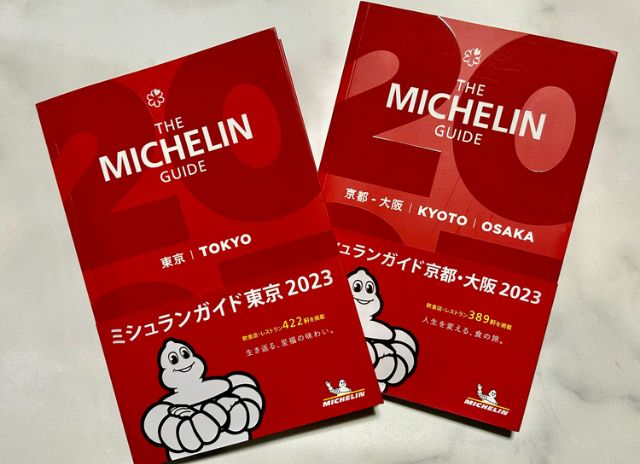
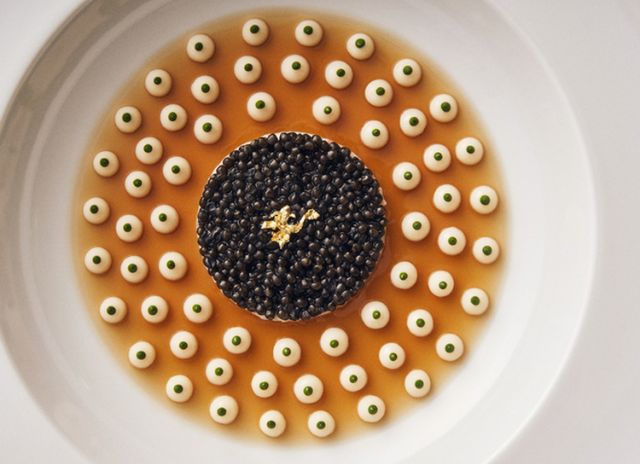
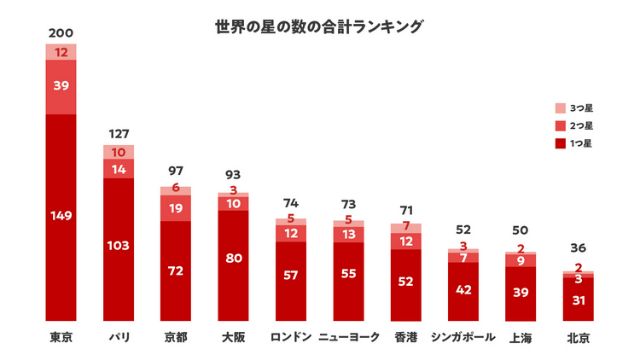
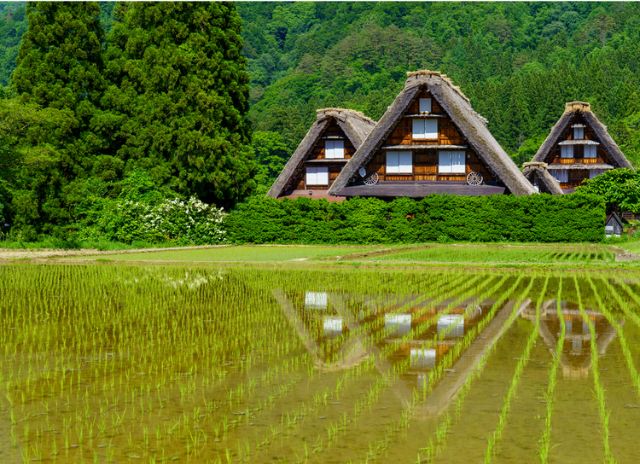

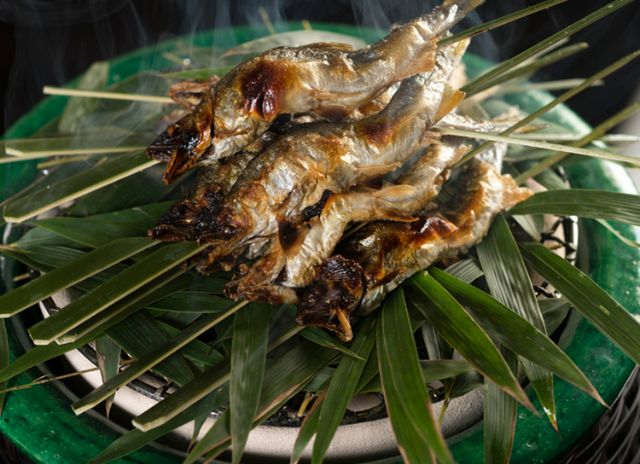
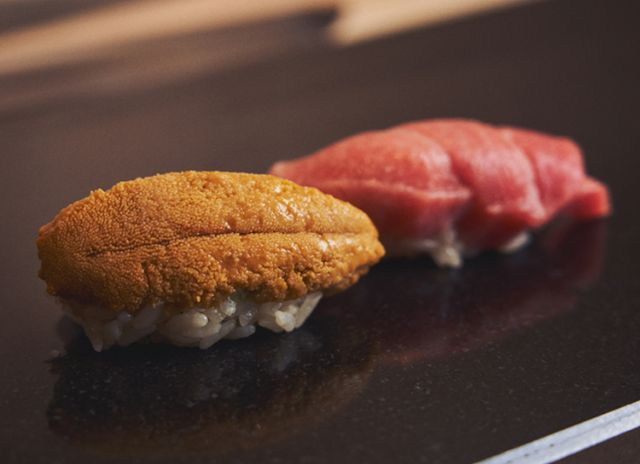
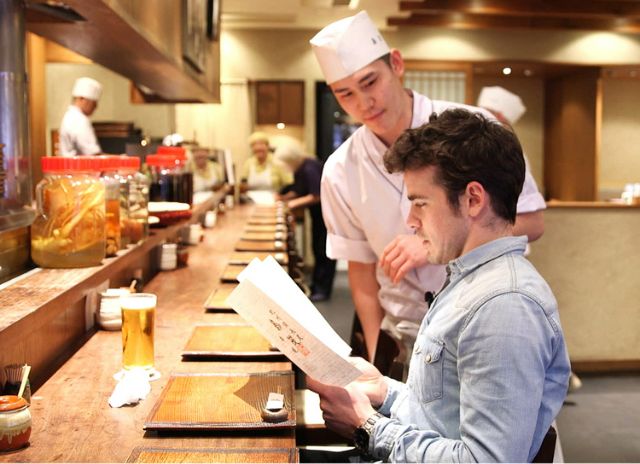









![Azabudai Hills [SUMI] (Janu Tokyo) ~ Editor's Afterword by the Editor-in-Chief of Japan's Gourmet Site](https://rimage.savorjapan.com/svj/image/discover_oishii_japan/6536/article_head_150x105z.jpg)









